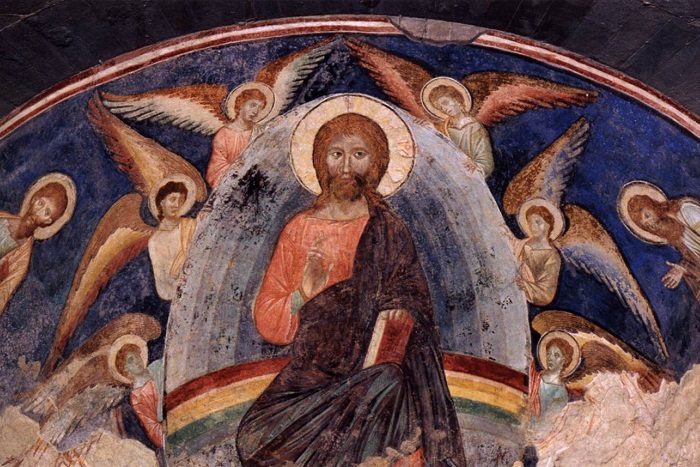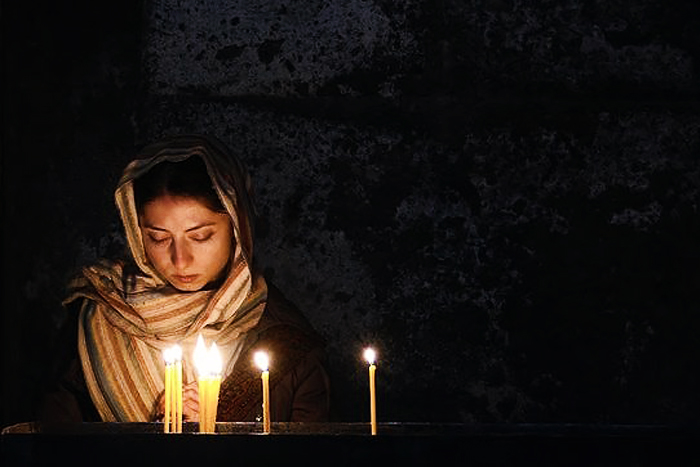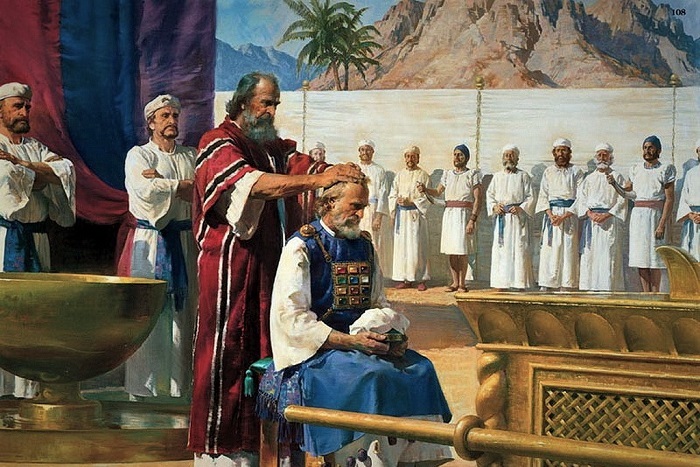
If the Biblical teaching about hell suffers in the popular imagination, being thought of as a kind of subterranean torture chamber erected and run by all-powerful divine sociopath, the Biblical teaching about heaven and the Kingdom doesn’t fare much better. The word “heaven” conjures up semi-comic images of people in long white nightgowns with wings and halos lounging about on clouds and playing harps. It all looks—well, boring, which fits right in with most people’s idea of Church. But what the Scripture actually teaches about the Kingdom and the final reward of the saints is very different.
First of all, heaven is not thought of as the final reward, but as an intermediate state. Christians go heaven when they die not as their reward for being good, but because Christ is there and because before He died He prayed to His Father that those whom He gave Him “may be with Me where I am, to behold My glory” (John 17:24). So, since Christ is in heaven at the right hand of God, that is where His disciples go after death also. Heaven is not their reward; being with Jesus is their reward, and He happens to be in heaven. Put another way, heaven is only heaven because Christ is there. Paul did not desire to “depart and go to heaven”, but to “depart and to be with Christ” (Philippians 1:23); to be absent from the body for the Christian is not to be in heaven, but to be “at home with the Lord” (2 Corinthians 5:8).
Heaven, therefore is wonderful, but it is not our final reward. That reward (like the retribution of the unrighteous) comes only after Christ has returned and has raised all the dead, restoring us in our reconstituted bodies. On that Day we will stand before the Lord and hear His judgment, and only after that receive our reward in the regenerated new heavens and the new earth which He will create (Matthew 19:28, 2 Peter 3:13).
What is that reward? If hell is the descent and collapse into unreality, a suffocation of the soul within the prison of its own petrified self-will, then our final reward will be its opposite. It will be our escape from prison darkness of sin into the full and sweet light of day, the emergence of the butterfly from the cocoon of this age. Here words can only fail to describe it, and the apostolic author of the Apocalypse has to strain the limits of language to give some faint hint of that glory, slinging symbols and multiplying metaphors. Even St. Paul, usually never at a loss for words, can only say that they are “Things which eye has not seen and ear has not heard and which have not entered the heart of man, all that God has prepared for those who love Him” (1 Corinthians 2:9). He says it is a weight of glory far beyond all comparison, one so immense that mere flesh and blood cannot receive it (2 Corinthians 4:17, 1 Corinthians 15:50). Unless God had raised us and made us powerful and imperishable, our frail mortal flesh could not bear such waves of glory and joy.
The Lord Himself gives us the barest of hints. He compares the reward to receiving authority over cities (Luke 19:17), which suggests that even in the age to come the time of service will not be over. Paul speaks of us judging the world, and even angels (1 Corinthians 6:2-3). Some might have drearily imagined that there will be nothing to do in the age to come but lie around in a kind of eternal hammock and doze, which sounds like it would become tremendously tedious very quickly. But these divine hints suggest that it will not be so, but that the one with the heart of the servant will still find opportunities to serve. For what could be better than kneeling and receiving commands from the Lord and having the opportunity to do His will and please Him? St. Gregory of Nyssa suggested the same sort of thing when he suggested that the age to come would bring with it an infinite growth in God.
Here I continually return to my beloved C.S. Lewis. In the conclusion of his The Last Battle, the final volume of his Narnian series, he presents the Christ-figure Aslan the lion as saying to the newly-dead, “The term is over: the holidays have begun. The dream is ended: this is the morning.” “And as He spoke He no longer looked to them like a lion; but the things that began to happen after that were so great and beautiful that I cannot write them. And for us this is the end of all the stories. But for them it was only the beginning of the real story. All their life in this world had only been the cover and the title page: now at last they were beginning Chapter One of the Great Story which no one on earth has read: which goes on forever: in which every chapter is better than the one before.”
This is what St. Gregory of Nyssa was talking about: an eternity of growth in joy, a story so wonderful that no one on earth has read it yet, a story which goes on forever, a story in which every chapter is better than the one before. This is why we persevere, and say our prayers, and go Church. This is why we get up and repent every time we fall. This is our reward. This is the weight of glory. This is Pascha. This is the Kingdom of the living God to which all His children are now hastening.



